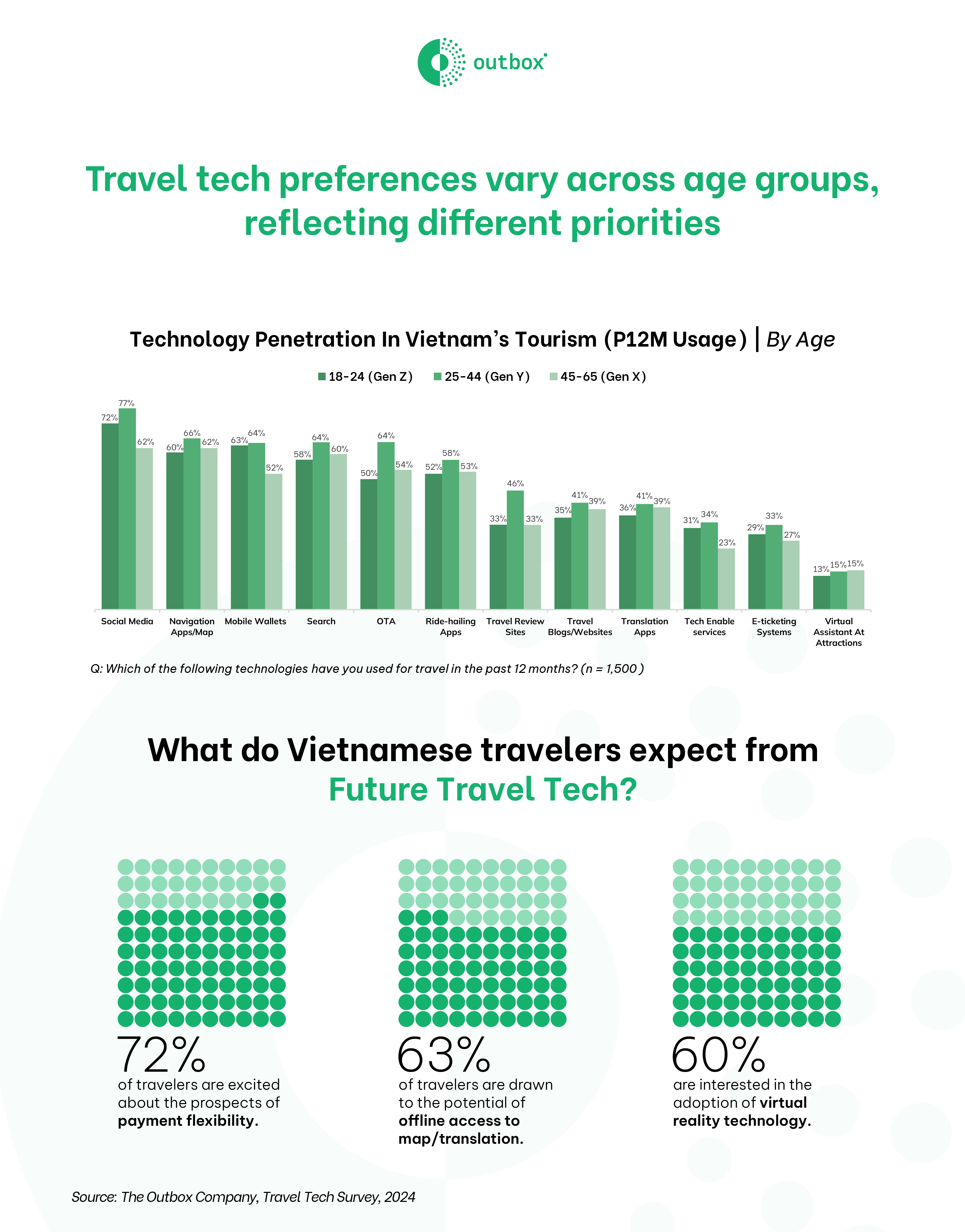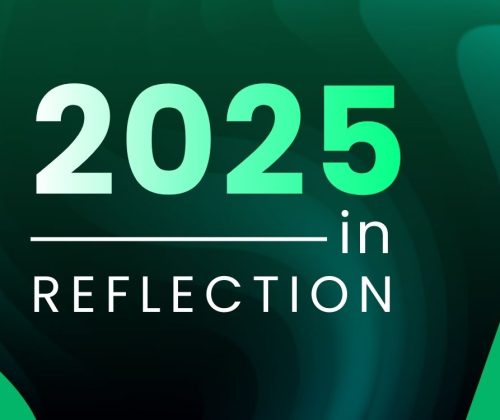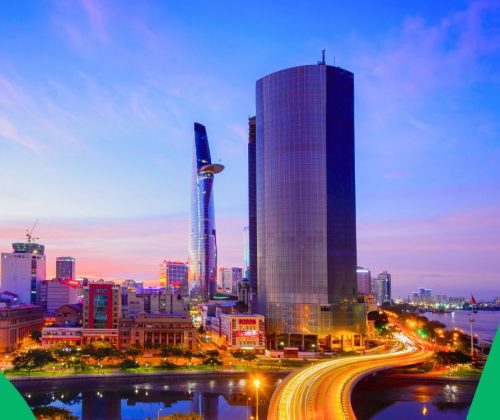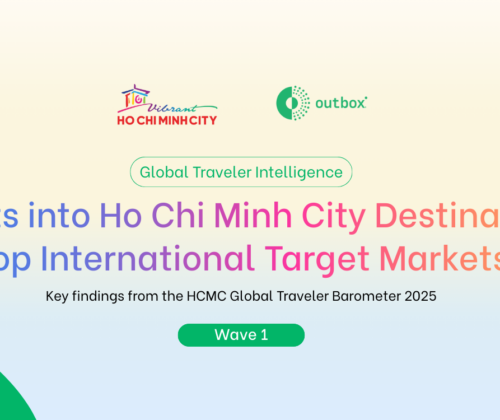The global travel industry is witnessing a transformative shift with technology at its core, enhancing the way travelers explore, book, and experience journeys. In Vietnam, an emerging travel market, the adoption of technology has begun to reshape traveler expectations. Although significant progress has been made, there are still untapped opportunities for businesses and destinations to leverage advanced travel technologies.
Technology Usage Among Vietnamese Travelers
Vietnamese travelers have embraced digital tools to simplify their journeys, particularly in mainstream areas like social media and navigation apps. These tools serve as essential companions, enabling travelers to plan, discover, and navigate destinations seamlessly. However, there remains an underutilization of advanced travel technologies such as AI-powered tools, virtual assistants, and e-ticketing systems. The dominance of these traditional tools highlights a gap in technology usage, leaving opportunities for businesses to integrate innovative solutions that enhance personalization and convenience. As travelers grow increasingly tech-savvy, businesses that address these gaps can position themselves as frontrunners in Vietnam’s travel tech landscape.
Travel Tech Perception in Vietnamese Travelers
Vietnamese travelers hold a positive outlook on the role of technology in improving their travel experiences. A notable shift has emerged, where travelers value practical, user-friendly tools that meet immediate needs while enriching their overall journey. Technologies like smooth payment systems, AI chatbots, and offline accessibility resonate most with their expectations. This growing optimism underscores a critical insight: travelers are open to exploring cutting-edge technologies if they can deliver real value. AI-powered tools, virtual reality (VR), and automation are gaining momentum as Vietnamese travelers increasingly seek personalization, efficiency, and engagement in their journeys.
Key Expectations for Travel Technologies
Based on insights from the Vietnam Travel Tech Survey 2024, travelers expressed clear preferences for technologies that prioritize convenience, immersive experiences, and support. Payment flexibility emerged as the most significant expectation, with 72% of respondents highlighting the importance of seamless and hassle-free transactions. This preference underscores a strong demand for tools that simplify the payment process, ensuring smoother travel experiences.
Offline access to maps and translations ranked second, with 63% of travelers emphasizing its importance. This reflects a growing need for accessibility and reliability, especially when navigating unfamiliar destinations without stable connectivity. Similarly, 60% of travelers are drawn to virtual reality (VR) technology, which allows them to explore and preview destinations in an immersive way, thereby enhancing inspiration and decision-making.
Personalized assistance also stood out as a priority, with 58% of respondents expressing excitement about AI chatbots. These tools provide real-time support, answering queries and offering tailored recommendations that improve traveler satisfaction. Automation, too, has captured attention, as seen in the rising interest in robotic assistants. With 52% of travelers showing interest, it is clear that automation tools have the potential to streamline services and enhance efficiency. Finally, smart luggage and RFID tags, which were noted by 50% of respondents, highlight the demand for more advanced and efficient baggage handling solutions.
These expectations reflect an evolving travel tech landscape where travelers are ready to embrace innovative tools that promise to optimize and elevate their overall travel experiences.
Why Businesses and Destinations Need to Take Action
The findings present both a challenge and an opportunity for businesses and destinations. To meet traveler expectations, businesses need to invest in technologies that deliver real value while addressing gaps in the current landscape. Tools like VR and AI personalization can enhance travel experiences by offering tailored recommendations and meeting individual needs, leading to greater satisfaction and loyalty. Similarly, the adoption of automated solutions, such as advanced payment systems and robotic assistance, can streamline operations, reduce friction points, and improve efficiency across the travel journey.
As the market evolves, businesses that embrace technological innovations will gain a competitive edge in Vietnam’s dynamic travel market. This allows them to not only appeal to domestic travelers but also position themselves as attractive destinations for international tourists. From personalized support through AI chatbots to immersive previews with VR technology, there are endless opportunities for businesses to leverage travel tech to transform the way travelers experience their journeys.
Vietnam’s travel tech landscape is at a turning point, with significant opportunities awaiting businesses that embrace technology to meet traveler demands. By investing in practical and innovative tools, businesses can deliver personalized, efficient, and immersive experiences that resonate with tech-savvy Vietnamese travelers.





